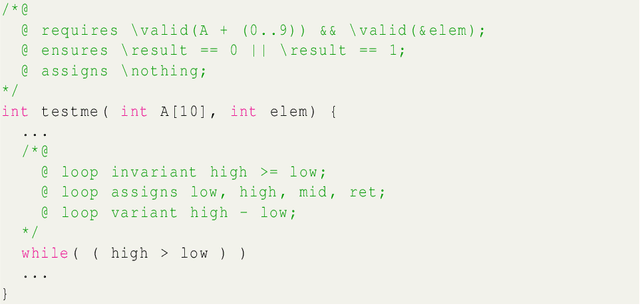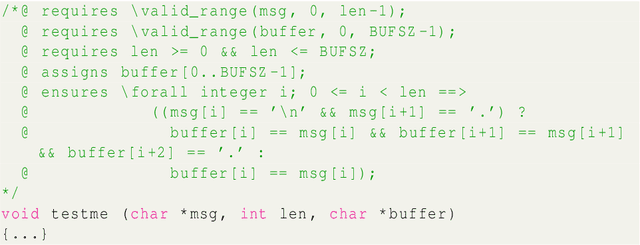Wolfgang Ahrendt
Specify What? Enhancing Neural Specification Synthesis by Symbolic Methods
Jun 21, 2024



Abstract:We investigate how combinations of Large Language Models (LLMs) and symbolic analyses can be used to synthesise specifications of C programs. The LLM prompts are augmented with outputs from two formal methods tools in the Frama-C ecosystem, Pathcrawler and EVA, to produce C program annotations in the specification language ACSL. We demonstrate how the addition of symbolic analysis to the workflow impacts the quality of annotations: information about input/output examples from Pathcrawler produce more context-aware annotations, while the inclusion of EVA reports yields annotations more attuned to runtime errors. In addition, we show that the method infers rather the programs intent than its behaviour, by generating specifications for buggy programs and observing robustness of the result against bugs.
 Add to Chrome
Add to Chrome Add to Firefox
Add to Firefox Add to Edge
Add to Edge